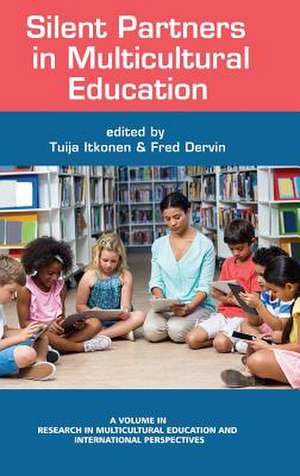Silent Partners in Multicultural Education (HC)
Editat de Tuija Itkonen, Fred Dervinen Limba Engleză Hardback – 24 feb 2017
Preț: 584.82 lei
Preț vechi: 688.02 lei
-15% Nou
Puncte Express: 877
Preț estimativ în valută:
111.92€ • 116.18$ • 93.32£
111.92€ • 116.18$ • 93.32£
Carte tipărită la comandă
Livrare economică 25 martie-08 aprilie
Preluare comenzi: 021 569.72.76
Specificații
ISBN-13: 9781681237220
ISBN-10: 1681237229
Pagini: 216
Dimensiuni: 161 x 240 x 16 mm
Greutate: 0.48 kg
Editura: Information Age Publishing
ISBN-10: 1681237229
Pagini: 216
Dimensiuni: 161 x 240 x 16 mm
Greutate: 0.48 kg
Editura: Information Age Publishing
Descriere
Explores the role of silent partners in multicultural education. Silent partners include formal and informal places - spaces in schools, objects, interactive technologies, but also often taken for granted patterns of thought, ideologies and assumptions. This book fills a significant empirical gap, and can inject public debate over working environments in schools for multicultural education.
